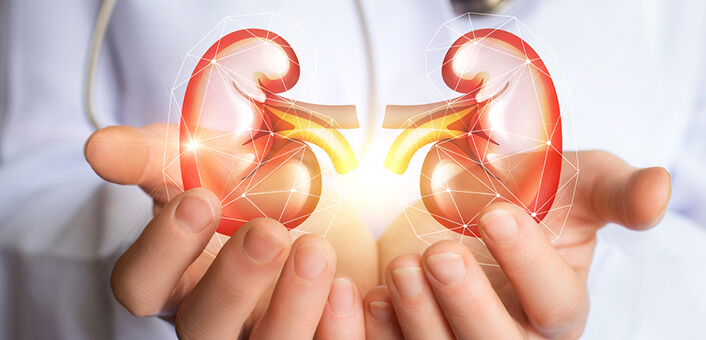Thursday 14th of March is designated World Kidney Day. World Kidney Day is a global awareness campaign aimed at raising awareness of the importance of our kidneys.
Around the world many hundred events take place in a bid to create awareness. Awareness about preventive behaviors, awareness about risk factors, and awareness about how to live with kidney disease.
Many of us may not know much about our kidneys so this would be a good time to get enlightened.
The kidneys are a pair of bean shaped organs located just below the rib cage on either side of the spine (back bone). Their main function is to filter the blood, remove waste and produce urine. The urine flows from the kidneys to the bladder through two thin tubes of muscle called ureters, one on each side of your bladder. Your bladder stores urine. Your kidneys, ureters, and bladder are part of your urinary tract.
The kidneys also remove acid that is produced by the cells of your body and maintain a healthy balance of water, salts, and minerals—such as sodium, calcium, phosphorus, and potassium—in your blood.
This balance is what helps the nerves, muscles, and other tissues in our body to work normally.
The kidneys also make hormones that help
- control blood pressure
- make red blood cells
- keep bones strong and healthy
These are all very important functions, therefore the kidneys are very important organs and it is important to keep them as healthy as possible always.

Certain medical conditions such as diabetes and high blood pressure are major risk factors for chronic kidney disease (CKD)
Chronic kidney disease (CKD) is a progressive loss in kidney function over a period of months or years. Each of your kidneys has about a million tiny filters, called nephrons. If nephrons are damaged, they stop working. For a while, healthy nephrons can take on the extra work. But if the damage continues, more and more nephrons shut down. After a certain point, the nephrons that are left cannot filter your blood well enough to keep you healthy.
When kidney function falls below a certain point, it is called kidney failure. Kidney failure affects your whole body, and the unfiltered waste in your body can make you feel very ill. Untreated kidney failure can be life-threatening.
If CKD is detected early and managed appropriately, the deterioration in kidney function can be slowed or even stopped, and the risk of associated cardiovascular complications can be reduced.
How do you determine if you might be at risk?
- Do you have high blood pressure?
- Do you suffer from diabetes?
- Do you have a family history of kidney disease?
- Are you overweight?
- Do you smoke?
- Are you over 50 years?
- Are you of African, Hispanic, Aboriginal or Asian origin?
If you have answered yes to one or more of these questions, you should discuss with your doctor, you may need testing for kidney disease! Early chronic kidney disease has no sign or symptoms. Kidney disease usually progresses silently, often destroying most of the kidney function before causing any symptoms. The early detection of failing kidney function is important because it allows suitable treatment before irreversible kidney damage or deterioration manifests itself through other complications.
Key preventive measures have been defined and proven successful in those with early stages of CKD as secondary prevention measures, which help slow disease progression and protect against both kidney and cardiovascular disease, such as:
Reduction of high blood pressure -the lower the blood pressure (within the normal range) , the slower the GFR decline
Specific medications to reduce proteinuria as well as lower blood pressure – angiotensin converting enzyme inhibitors (ACE inhibitors) or angiotensin receptor blockers (ARBs)
Reduce salt intake to lower blood pressure
Control of glucose, blood lipids and anemia
Smoking cessation
Increase of physical activity
Control of body weight
For those who are fit and healthy and do not have any risk factors for kidney disease, it is still important to adopt and maintain healthy lifestyles (drink lots of water, exercise, eat healthy, avoid smoking).
Kidney disease can be very expensive to treat, especially in third world countries where resources are very limited. So we need to do our best to keep our kidneys in good health.
Many types of kidney diseases can be prevented, delayed and / or kept under control when appropriate prevention measures are in place.






